You may be wondering if you can give your baby fruit juice, especially if they have started solids. Here is everything you need to know about giving juice to babies, including when you can give juice to babies, what kinds, and how much.
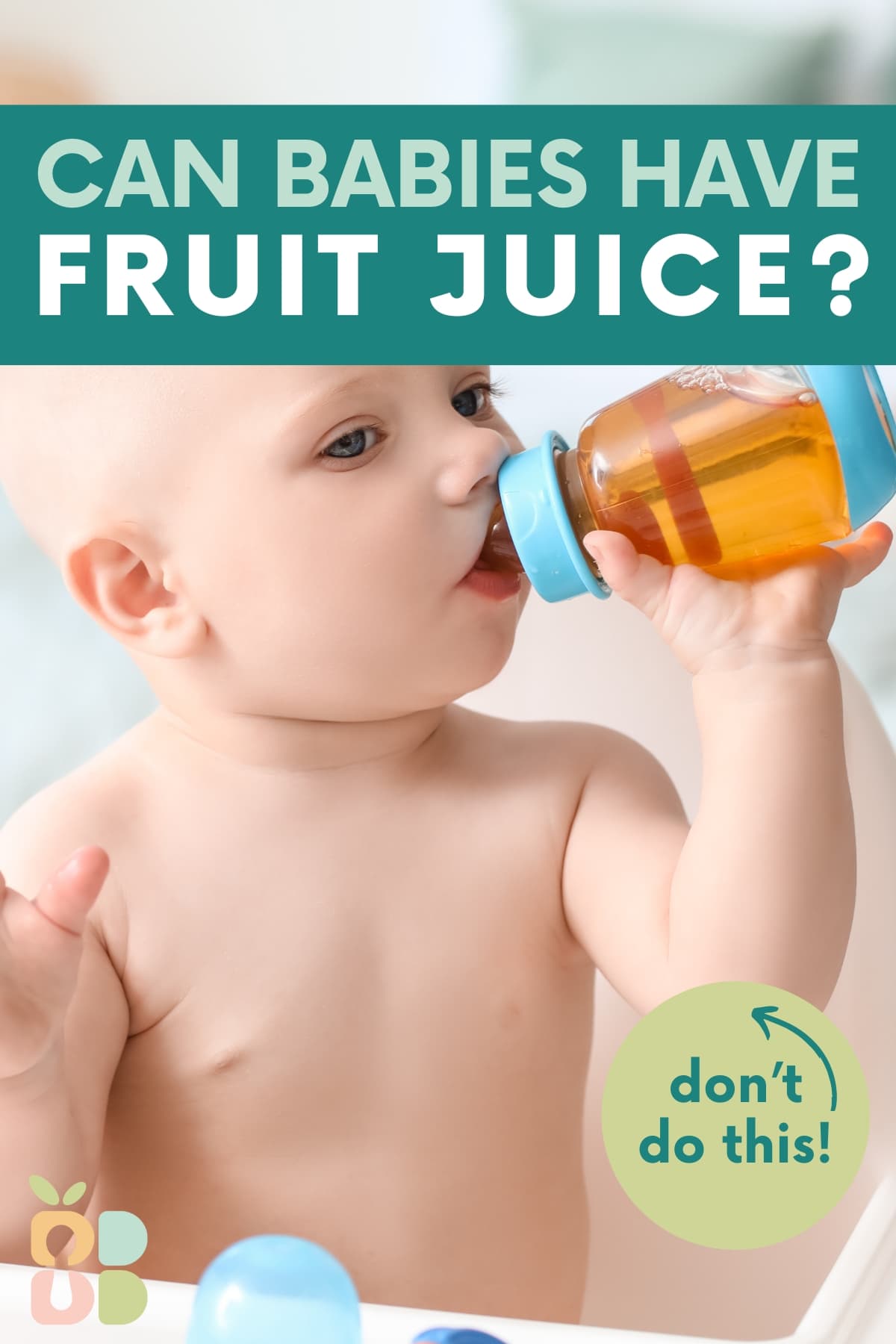
It is not uncommon to see young babies with baby bottles full of what appears to be apple juice or other kinds of fruit juice. You may have also heard that you shouldn't give juice to babies. To help clear up the confusion, let's discuss when it's appropriate to give juice to babies and why!
Jump to:
Can Babies Drink Juice?
In a word, no. While a sip of fruit juice won't harm them, babies don't need anything to drink besides breastmilk or formula before the age of 6 months. After starting solids, around 6 months of age, babies can also have water with meals, but it is still not advised to give juice until babies are 12 months of age, according to the American Academy of Pediatrics.1
Why Shouldn't Babies Drink Juice?
Before 6 months of age, breast milk or formula provides the sole source of nutrition for infants. Adding anything else into babies diets, who have tiny tummies, can cause baby to fill up faster, pushing out the nutrient dense milk. The same goes for 6- to 12- month olds who are starting solids. They really need to be getting the most nutrition per bite (or sip) from breastmilk and complementary foods. Juice, which is not as nutrient dense and higher in sugar than whole fruit, can push out more nutritious options.
There is also the sugar aspect. First, allowing babies to sip juice throughout the day, especially in a bottle or sippy cup, can lead to dental cavities, according to the American Dental Association.2 Babies should never be put to bed with a bottle, and especially not with a bottle of juice. The sugar in juice also may lead babies to prefer sweeter tastes and reject plain water plater on if they become used to drinking fruit juice. The sugar in juice is also concentrated in liquid form without the benefit of protein, fat, or fiber, which could lead to diarrhea if consumed in excess.3
At What Age Can Babies Drink Juice? How Much Juice Is Okay?
Once babies reach 12 months of age, it is okay to give juice in small amounts. The AAP and ADA both recommend no more than 4 ounces per day in an open cup as part of a meal or snack. Make sure you are giving 100% real fruit juice, not juice concentrate and not a sweetened 'juice drink', which often has sugar, corn syrup, or other sweeteners and/or colors added to it.
Bottom Line
No juice until baby is at least 1 year old. After that, no more than 4 ounces of 100% fruit juice per day, and definitely not in a bottle or to carry around throughout the day. As a dietitian and mom, I look at juice as an occasional treat versus a regular beverage, sticking instead to just water and cow's milk. I also prefer to offer watered-down juice for toddlers as long as they will accept the less sweet version so that they don't develop a taste for hyper-sweet drinks. It is best for children to get the nutrients they need from real fruit, which offers the benefit of fiber and more vitamins and minerals than juice.
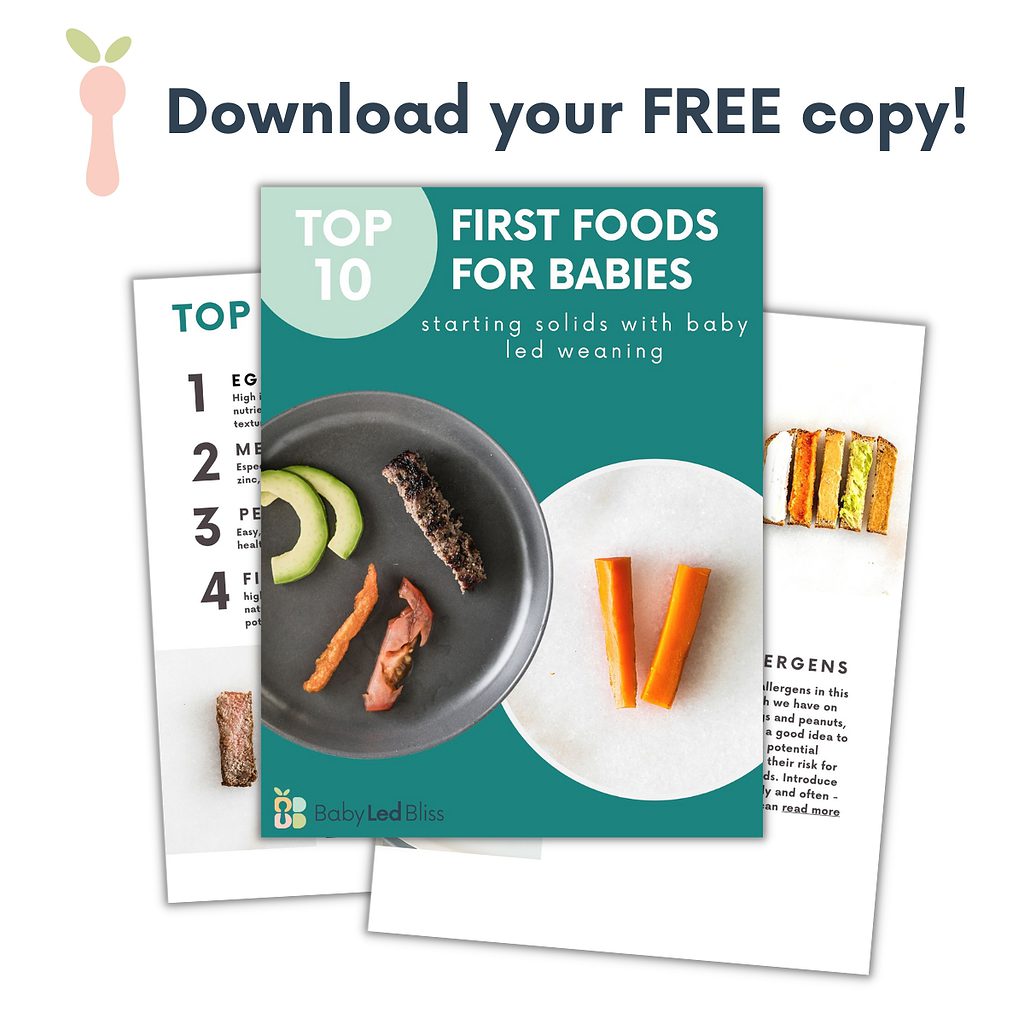
Other FAQ
Even watered down juice should not be given to babies before 12 months.
The one exception to the juice rule is offering prune juice when baby is constipated. Prune juice is a natural, effective way to relieve constipation in babies, especially when starting solids. You can also offer prune puree, which has the benefit of using the whole fruit.
Until 6 months, breast milk or formula are the only drinks baby needs. From 6 to 12 months, the only other beverage that I recommend is water.
Once toddlers are able to drink juice, 100% fruit juice, preferably not from concentrate, is best. Avoid 'juice drinks' or 'juice cocktail' which have added sugar or corn syrup. Also avoid 'light' versions of juice, which have artificial sweeteners - also not good for little ones. If you want to reduce the sugar, water the juice down a little bit.

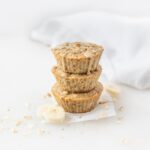
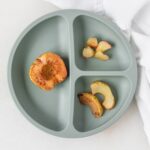
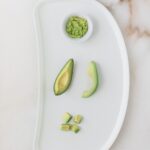
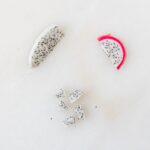
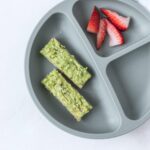
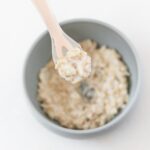




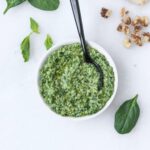




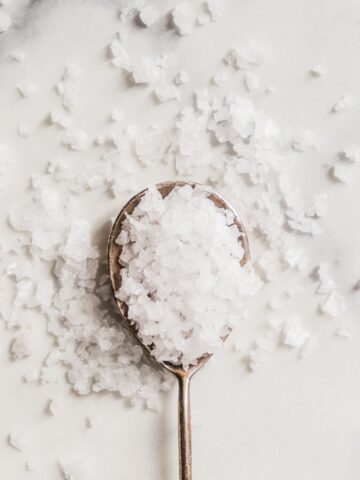
Leave a Reply